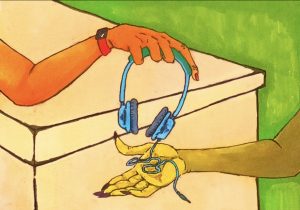Undergraduate research assistants deserve to be paid
August 30, 2022
UT boasts an impressive research program, providing a vast number of research opportunities for undergraduate students to work with professors or graduate students in labs. The college of natural sciences even houses the largest university undergraduate research program in the nation, the Freshman Research Initiative. Undergraduate research opportunities provide students with much needed experience necessary for job hunting or graduate school applications.
However, many undergraduate research assistants at the University are unpaid, despite working upwards of 10 hours a week and some labs requiring a full year commitment. This is a big undertaking, leaving students with little time for much else. Additionally, because of the significant time commitment, many students do not have time to take on a paying job.
Instead of allowing students to take on additional work and stress just for the experience, UT should pay all their undergraduate research assistants.
Biomedical engineering senior Aparajith Kannapiran works in a lab dedicated to developing an injectable bone graft formula. Kannapiran has worked there since the spring semester of his freshman year.
“It would be especially nice … if there was an option to get paid,” Kannapiran said. “Getting paid would definitely feel like you’re being compensated for your work, especially in labs where you have to work 10 plus hours a week, so that would be really helpful.”
Students who are not being paid for their work and time are often forced to choose between gaining experience in the lab or leaving to find a paid role. Additionally, some labs require certain skill sets and knowledge, meaning students must stay in the lab to gain the experience necessary, but risk taking up time that could be otherwise spent in a paid position.
By not providing paid research opportunities for all the undergraduate research assistants, UT is placing students in a difficult position.
STEM instruction consultant and assistant professor of instruction Brandon Campitelli runs an application based program called TEJAS, which funds research opportunities for undergraduate students in the college of natural sciences, particularly those from low-income households. Campitelli said that many students he works with in the program rely on the funding in order to continue their research.
“If (students) can’t get paid for doing research, then they probably can’t do the research,” Campitelli said.
In some research labs and majors, such as biology, the University provides an option for students to earn credit towards their degree or fill elective hours. However, this policy varies across labs, and students may not need more elective credits after they have fulfilled their requirements.
“My lab has a policy where (in) our first semester working in the lab, we’re not allowed to get any credit because that time is typically spent learning all the material,” Kannapiran said. “You have to work a little bit more — if you work a few more hours a week, (you) can get three credit hours.”
In order to earn credit, students must spend additional hours in the lab, but undergraduate research assistants should not be expected to commit so much time to a lab when they are not being financially compensated.
The University has an enviable research program, but they should give students every chance to participate. Students deserve to have paid research opportunities through the University, and not risk giving up a crucial experience just because they aren’t being paid.
Abbe is a communications studies and government junior from Fort Worth, Texas.
















